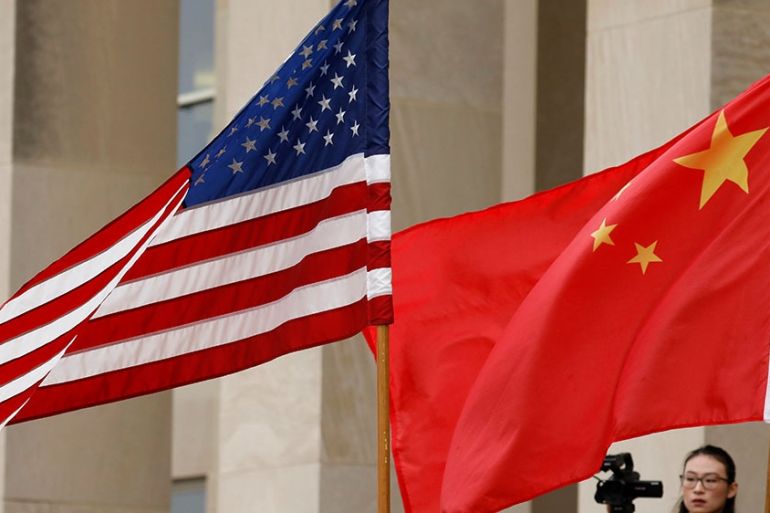China to boost efforts to open financial sector to foreign firms
Increased access by US firms to China’s financial sector among a host of Washington demands in US-China trade war.

China will remove business restrictions on foreign banks, brokerages and fund management firms, a cabinet meeting chaired by Premier Li Keqiang on Wednesday said, according to state television.
China has stepped up efforts to open its financial sector amid a festering trade war with the United States, with increased access to its financial sector among a host of demands from Washington.
Keep reading
list of 4 itemsPolitics and convenience drive Mexico to be US’s top trading partner
Will Xi and Biden mend US-China relations at the APEC summit?
UK warns of Russia laying ‘sea mines’ to deter Black Sea cargo ships
Last week, China announced a firm timetable for opening its futures, brokerage and mutual fund sectors fully to foreign investors next year, the latest step to deregulate the country’s trillions of dollars’ worth of financial industry.
The cabinet did not elaborate on what effect the removal of the curbs would have.
China will also support local governments’ efforts to attract more foreign investment and give foreign investors more leeway in overseas borrowing, the cabinet said.
China will not allow forced technology transfers by foreign firms, it said.
Stabilising foreign investment is part of Beijing’s efforts to support the slowing economy that has been pinched by the country’s trade war with the United States.
China’s economic growth is expected to slow to a near 30-year low of 6.2 percent this year and cool further to 5.9 percent in 2020, a Reuters poll showed, even as Beijing steps up policy stimulus.
The government has been leaning heavily on fiscal stimulus to support the economy, including big tax cuts and increased spending on infrastructure investment.
Tax and fee cuts amounted to 1.5 trillion yuan ($211.32bn ) in the first eight months, which has helped ease burdens on firms and boost incomes and employment, with the full-year reductions set to exceed two trillion yuan ($282bn), the cabinet said.
The federal government will also support local governments that are facing fiscal difficulties to ensure wage payments, the cabinet said.